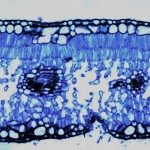Lien vers Pubmed [PMID] – 39239731
Lien DOI – 10.2807/1560-7917.ES.2024.29.36.2400069
Euro Surveill 2024 Sep; 29(36):
BackgroundThe number of cholera cases reported to the World Health Organization (WHO) in 2022 was more than double that of 2021. Nine countries of the WHO European Region reported 51 cases of cholera in 2022 vs five reported cases in 2021.AimWe aimed to confirm that the Vibrio cholerae O1 isolates reported by WHO European Region countries in 2022 belonged to the seventh pandemic El Tor lineage (7PET). We also studied their virulence, antimicrobial resistance (AMR) determinants and phylogenetic relationships.MethodsWe used microbial genomics to study the 49 V. cholerae O1 isolates recovered from the 51 European cases. We also used > 1,450 publicly available 7PET genomes to provide a global phylogenetic context for these 49 isolates.ResultsAll 46 good-quality genomes obtained belonged to the 7PET lineage. All but two isolates belonged to genomic Wave 3 and were grouped within three sub-lineages, one of which, Pre-AFR15, predominated (34/44). This sub-lineage, corresponding to isolates from several countries in Southern Asia, the Middle East and Eastern or Southern Africa, was probably a major contributor to the global upsurge of cholera cases in 2022. No unusual AMR profiles were inferred from analysis of the AMR gene content of the 46 genomes.ConclusionReference laboratories in high-income countries should use whole genome sequencing to assign V. cholerae O1 isolates formally to the 7PET or non-epidemic lineages. Periodic collaborative genomic studies based on isolates from travellers can provide useful information on the circulating strains and their evolution, particularly as concerns AMR.





